Victims of scooter accidents demand compensation from kick sharing companies
In Tatarstan, authorities are seeking to ban personal mobility devices before cases reach the courts
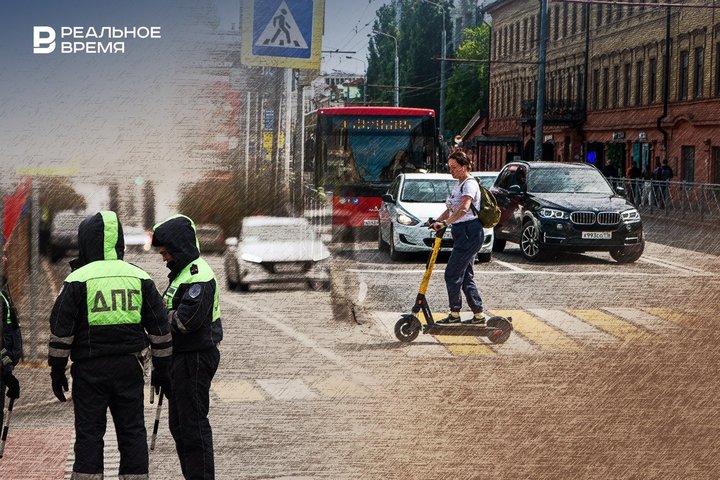
Russia is witnessing a growing wave of civil lawsuits against e-scooter sharing companies, as victims of road accidents involving scooter riders seek compensation. Claimants are demanding sums of up to 2 million rubles. Legal experts point to the emergence of a new judicial trend: the lawsuits are being filed not against the individual riders, but directly against the rental service providers. While no such cases have yet been registered in Tatarstan, experts warn that the high number of accidents involving personal mobility devices (PMDs), combined with the start of the riding season, makes similar legal disputes in the region increasingly likely.
Who should pay 2 million?
A St. Petersburg resident is demanding 2 million rubles in moral damages and an additional 45,000 for medical expenses from the scooter rental service Whoosh, after sustaining an incurable condition in September 2024 when she was struck by an e-scooter operated by a minor. Another woman from the same city is seeking a total of 1.7 million rubles jointly from Sharing Technologies PLC and Yandex.Eda, after being left wheelchair-bound following a collision with a courier riding a scooter. A third St. Petersburg resident is claiming around 550,000 rubles from Whoosh PLC for injuries suffered in a separate e-scooter incident in 2023.
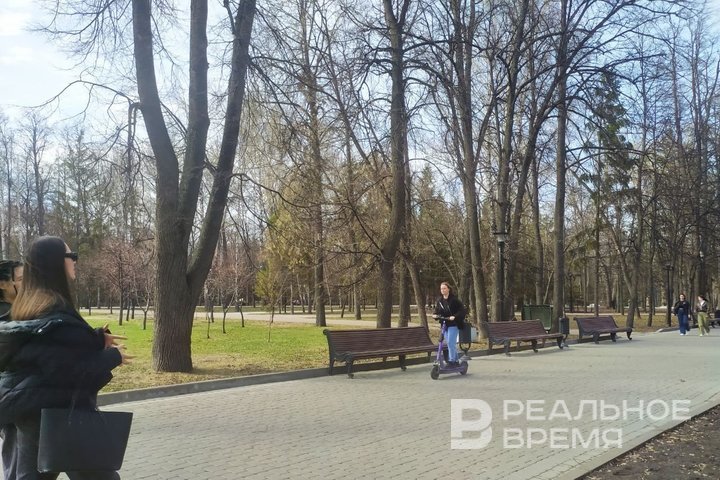
Across Russia, car owners have filed a greater number of lawsuits against rental companies after their vehicles were damaged in accidents involving scooter riders suddenly entering pedestrian crossings. However, publicly available court data suggests that such claims against rental services are typically rejected.
Russian courts base their decisions on the terms of public offers published on the official websites of scooter rental services. According to these terms, an e-scooter is considered to be under the control of the renter for the duration of the rental period. In the event of damage or injury caused while using the scooter, the user agrees to fully compensate any harm inflicted on third parties as a result of their actions.
Limiting to insurance
The press service of the e-scooter rental company Whoosh declined to comment on the matter. In general, industry representatives maintain that responsibility for road accidents lies with the individual operating the vehicle at the time of the incident.
Scooter rental companies are required to insure all rides against potential accidents, with coverage automatically extended to all affected parties — both personal injury and property damage are included. However, the maximum payout is capped at 1 million rubles, and the actual amount awarded is determined by the insurer based on the extent of the harm caused.
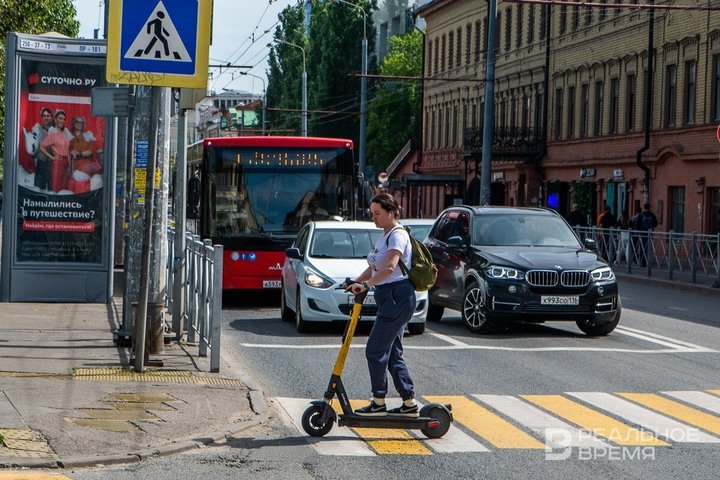
“As per traffic regulations, responsibility for an accident lies with the individual operating the vehicle,” industry representatives emphasise.
It is worth noting that, based on the presence of insurance and the size of payouts in each case, Russian courts have repeatedly taken a “middle-ground” approach — upholding claims for damages filed by victims of e-scooter accidents, but only against the users who rented the scooters involved. In such cases, the courts have ruled to recover expenses not covered by insurance directly from the individuals in whose name the scooter was rented at the time of the incident.
For example, in December 2025, a magistrate at Judicial District No. 367 of the Tverskoy District in Moscow ordered the at-fault rider, who had rented a scooter through the Whoosh service, to pay 46,500 rubles to the injured party — compensation for costs not reimbursed by the insurer.
However, this approach to damage compensation does not always work in practice. For instance, the same court declined to uphold a claim filed by a car owner whose vehicle was damaged after being hit by an e-scooter. The rider fled the scene, and the insurance provided by the scooter-sharing service did not fully cover the cost of repairs. As a result, the motorist was left with a shortfall of 30,000 rubles — an amount that no party was ordered to reimburse.
Theory without practice remains dead letter

Zolotov draws a comparison with ride-hailing platforms, noting that if an accident involves a migrant driver, it is often nearly impossible to recover damages. “Even when a court rules in favour of the victim, the person responsible for the crash is either untraceable or has no assets to recover," he explains.
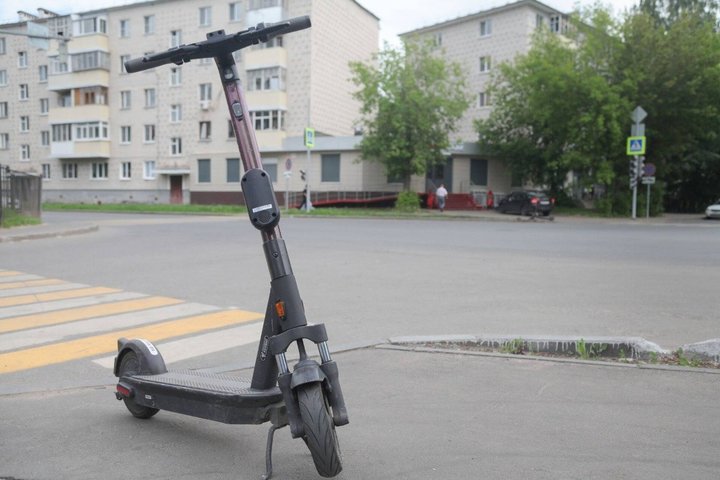
“As for cases where someone causes an accident, abandons the scooter, and flees the scene — this is primarily a failure on the part of the police,” says Zolotov. “The rental company that issued the scooter must provide the identity of the renter to the court or the injured party. Of course, personal data won’t be disclosed directly to the victim, but through a formal court request, it's possible to determine who had control of the scooter at the time and seek compensation accordingly.”
Zolotov also emphasises that if an accident results in moderate or serious bodily harm, it carries criminal liability. “In such cases, the argument that ‘the scooter wasn’t mine’ simply doesn’t hold. This is a high-risk means of transport — just like a firearm or a car. The owner bears responsibility, as does the person to whom the scooter was rented.”

According to Kopvillem, the position of the Supreme Court of the Russian Federation is clear: if a person lawfully takes control of a vehicle—such as by signing a rental agreement or being listed on an OSAGO insurance policy—then legal responsibility for the consequences of an accident lies not with the owner, but with the user. However, he points out that there are numerous legislative gaps on this issue. “Personally, I believe that in such cases, full financial responsibility to the victim should rest with the owner,” he says. “Only afterward should the owner seek reimbursement from the individual who caused the accident — the renter.”
What if they are banned at all?
In April 2025, e-scooters reappeared on the streets of Kazan — but the riding season never officially opened. While previous years had seen a steady increase in designated parking zones for shared personal mobility devices, in 2025 the city administration proposed reducing their number by 568, primarily in the city centre where sidewalks are too narrow to allow safe coexistence between pedestrians and scooter traffic. Authorities also suggested imposing a speed limit of 20 km/h on scooters.
The proposed measures have been submitted for review by Tatarstan’s governmental commission on road safety. If adopted, the total number of designated parking spaces for electric scooters would drop from 13,000 to 8,000 — leading to a proportional decrease in the number of shared scooters in circulation.
Kazan’s traffic police are advocating for a complete ban on scooter rentals, a stance supported by the Ministry of Internal Affairs for Tatarstan. According to ministry data, 38 accidents involving electric scooters were recorded in the republic over the first 11 months of 2024. These incidents resulted in 39 injuries and one fatality.
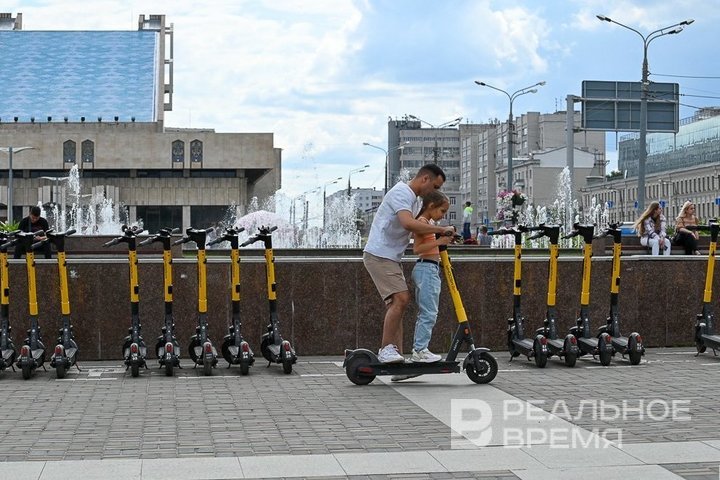
In December 2024, Damir Sadretdinov, the head of the Ministry of Internal Affairs for Tatarstan, proposed halting the allocation of land for scooter parking due to the lack of necessary infrastructure for personal mobility devices (PMDs) in the cities of the republic. He also pointed out that the rise in accidents correlates with the increase in the number of PMDs on the roads, particularly rental scooters, many of which are ridden by minors. Tatarstan's President, Rustam Minnikhanov, expressed his support for these proposals regarding the regulation of electric scooters:
“Of course, they should only be used in designated areas where there is proper infrastructure, such as separate lanes.”

Mikhail Savin, the head of the City State Traffic Inspectorate, told Realnoe Vremya that the e-scooter rental season in Kazan cannot begin without prior approval from the traffic police:
“Without coordination with the traffic police, the season cannot be opened, and we have not approved its opening. We are waiting for a decision from the rais (head) of Tatarstan and the executive committee regarding the proposals,” Savin said.
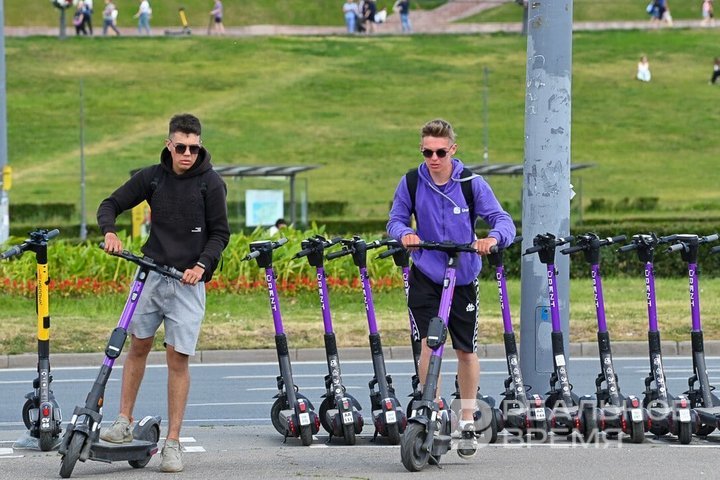
Auto lawyer Vladlen Kopvillem believes that banning e-scooter movement is not the solution. Instead, he argues for the creation of proper infrastructure to accommodate this new mode of transport, though he acknowledges that municipalities have the right to determine where scooters should be allowed:
“Simply banning them won’t solve the problem. A new form of transport has emerged, and progress cannot be stopped. We need to find a way to manage this issue.”